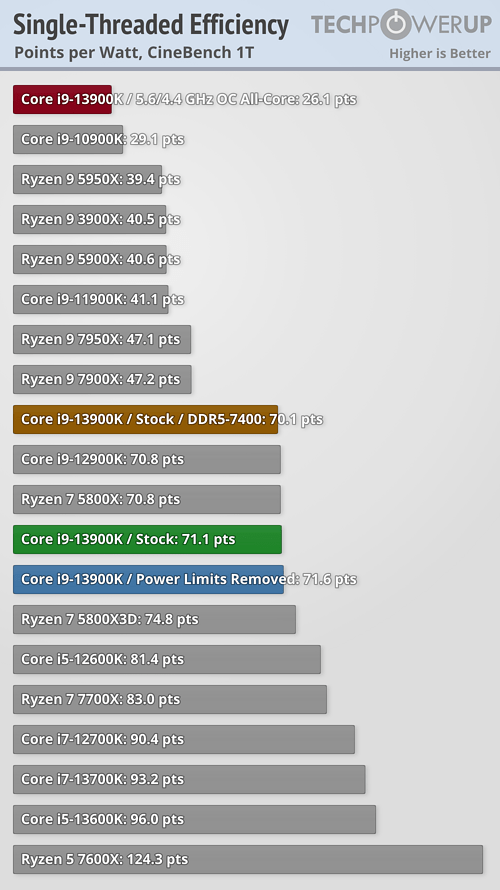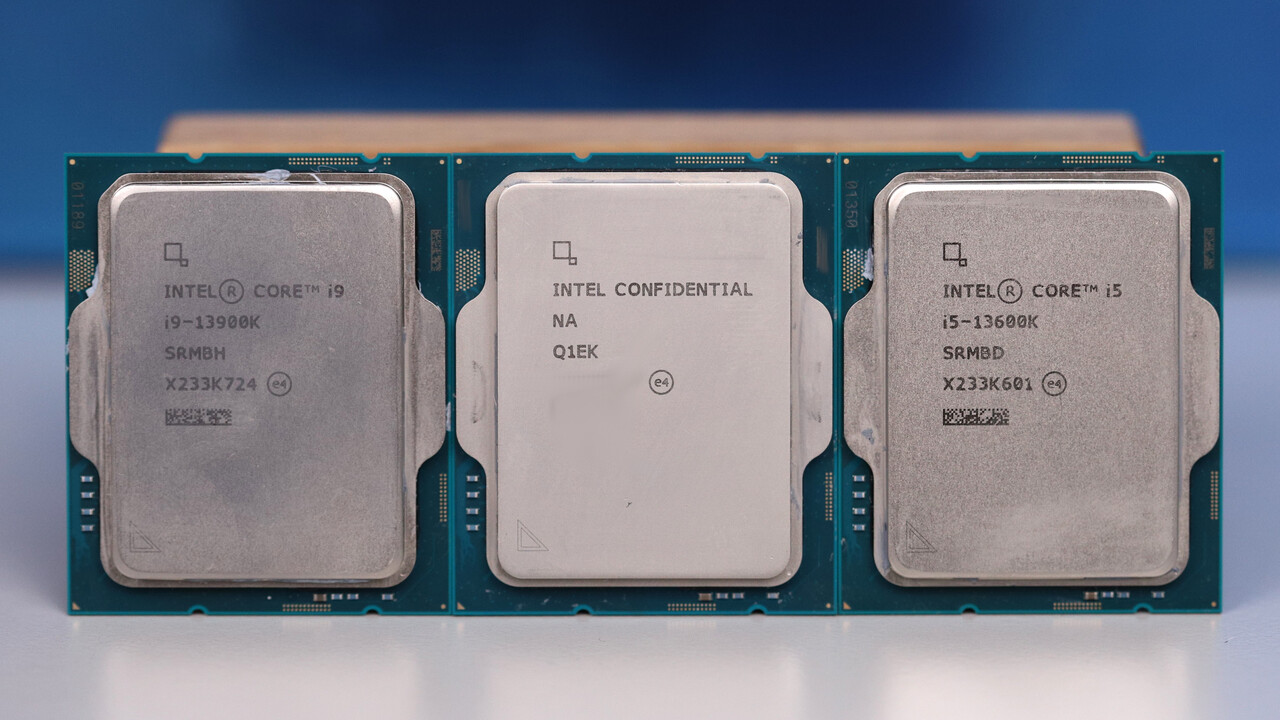That's very specific to
scalable workloads (i.e. >= 32 threads), though. It's not as if its efficiency on lightly-threaded tasks improved anywhere
near as much, yet that what most people spend most of their time running.
I'm also suspicious of exactly what they mean by 65 W, in that context. You're treating it as if they mean PL2=65 W, but that figure appears to be referring to PL1. That doesn't mean you're wrong (it wouldn't be the first marketing slide to have such an inconsistency), but it just shows that we should really want to see controlled experiments and not just a marketing slide.
When we dig into some actual data, efficiency on Cinebench nT, which is definitely a scalable workload, only improved 17.8%. Hardly insignificant, but far short of their 41% and also leaving it just 75.4% as efficient as 7950X.
On single-threaded Cinebench, it actually
regressed, being just 89.3% as efficient as the i9-12900K.
It still beats many Ryzen X-series CPUs, but such a big drop isn't what I'd expect to see after hearing someone speak so effusively about its efficiency.
Don't get me wrong: I'm not anti-Raptor Lake. I was just confused by the incongruity of how you were talking vs. all the benchies I've been seeing.






